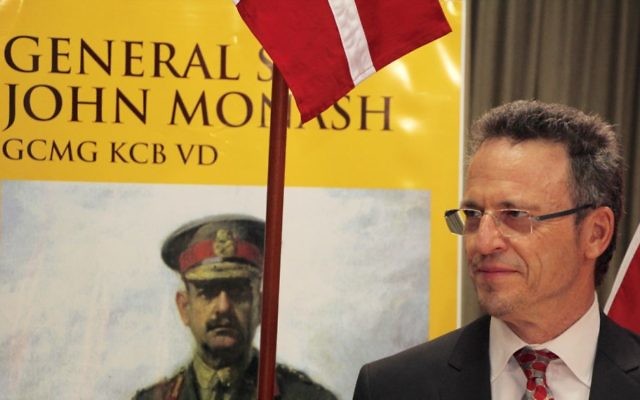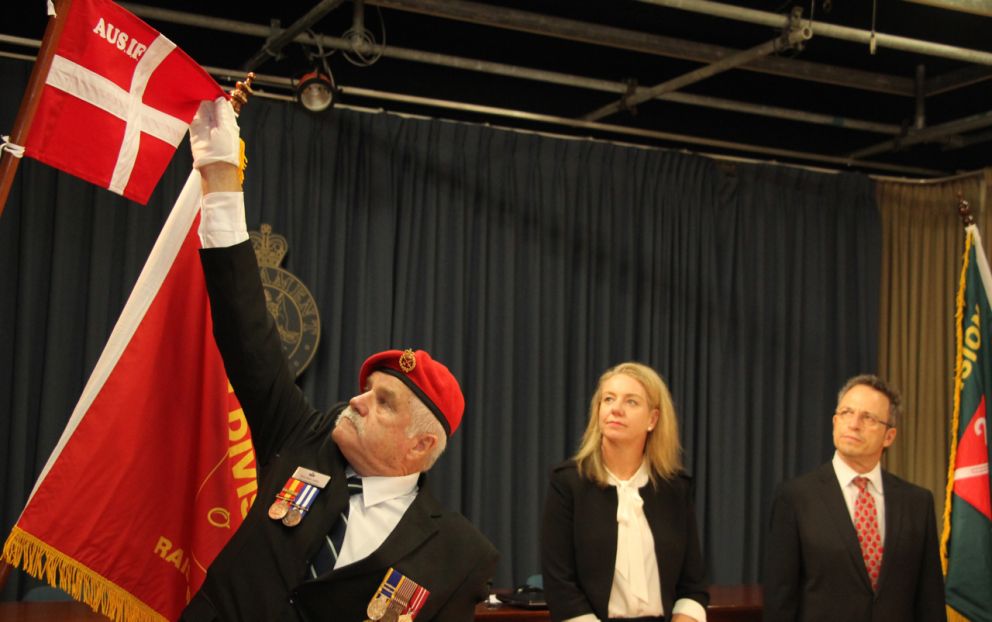Time to promote Monash
A national campaign for the posthumous promotion of General Sir John Monash to the highest Australian military rank of Field Marshal, by Remembrance Day 2018, built momentum in Sydney last week.

A NATIONAL campaign for the posthumous promotion of General Sir John Monash to the highest Australian military rank of Field Marshal, by Remembrance Day 2018, built momentum in Sydney last week.
The Saluting Monash Council (SMC) held its NSW launch at Parliament House on March 8, framing the campaign as “righting a wrong”.
It was given extra zest by an impressive guest speaker list that included Monash’s great-grandson Michael Bennett, author and journalist Peter FitzSimons and several politicians.
SMC national chairman Tim Fischer said via video link: “It’s never too late to correct a wrong,” adding that after WWI, prime minister Billy Hughes had frozen Monash’s rank “very unfairly”.
“Monash was discriminated against on several counts, being the son of Prussian migrants, being Jewish … he was neither Duntroon nor Sandhurst [trained] and that was resented … [war historian Charles] Bean said he was too old.
“Well, enough is enough.”
Victorian Senator Bridget McKenzie said of Monash, “The things that held that rank back from him – being ageism, being -anti-Semitism, being elitism – have no place in modern Australia”.

FitzSimons, who is writing a book called The Monash Masterpiece: The Battle of Le Hamel, commended SMC for its timely campaign.
“For me, the essence of what Monash was about was that he didn’t come out of the class system, he was of the people and he treasured the lives of his men,” FitzSimons said.
“And also the fact that he totally revolutionised the way of warfare.
“In the Battle of Le Hamel, instead of doing it the way of Fromelles – which was to just send wave after wave of soldiers and have them cut to pieces – Monash planned it as an engineer, as a man with three degrees.
“He had planes come in very low, then tanks were moved forward, and the infantry was working in tandem behind.
“That model was then adopted for the rest of the war, and it saved countless lives.”
Matt Thistlewaite MP said Monash was “instrumental in transforming British and Allied views of the Australian soldier”.
Bennett said he feels very pleased to see the growing interest in Monash’s legacy, “as an engineer, as a soldier and as a nation-builder”.
“Monash was seen as a leader in the Jewish community, particularly on his return from the war,” Bennett told The AJN.
“And although he was quite secular, I know he was very proud of his origins.”
For more information about SMC’s campaign, visit www.monash4 fieldmarshal.org.au.
SHANE DESIATNIK

comments